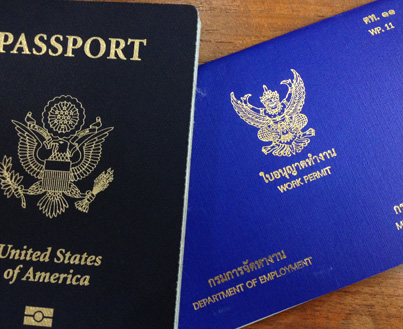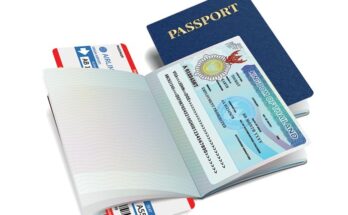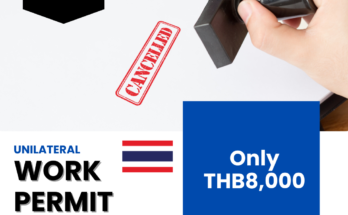Thailand’s allure as a destination for work is undeniable, but the journey to securing a work permit and a Non-B visa requires careful navigation through the intricate procedures laid out by immigration and labor authorities. In this comprehensive guide, we explore the step-by-step process from both the employee and employer perspectives, detailing the exact documents required by both immigration and the labor office.
Employee Perspective:
- Job Search and Offer:
- Seek employment opportunities in Thailand through online job portals, networking, and recruitment agencies.
- Secure a job offer from a Thai employer that adheres to Thai labor laws, including salary and benefits. You should also make sure that your future employer qualified to hire / sponsor a foreigner. This may means they need to have updated financial records, pay all their VAT, Taxes and WHT and also have at least 4 Thai staffs who are registered on Social Security System for at least 3 months.
- Document Preparation:
- Valid Passport: Ensure your passport has at least six months’ validity from the intended date of entry.
- Educational Certificates: Copies of educational certificates and professional qualifications.
- Transcripts: Academic transcripts relevant to the position.
- Resume: A detailed resume outlining your work experience and skills.
- Notarized Translations: All documents should be translated into Thai and notarized.
- Medical Certificate:
- Obtain a medical certificate from an accredited medical facility indicating good health.
- Non-B Visa Application:
- Submit the following documents to the Thai embassy or consulate:
- Passport with valid Non-B visa pages.
- Completed visa application form.
- Passport-sized photos.
- Airline ticket or itinerary.
- Submit the following documents to the Thai embassy or consulate:
- Arrival in Thailand:
- Travel to Thailand within the visa validity period.
- Report to the employer and begin the work permit application process.
- Work Permit Application:
- Collaborate with the employer to prepare the necessary documents, including:
- Passport and Non-B Visa Copies
- Educational Certificates and Translations
- Medical Certificate
- Resume
- Attend the mandatory medical checkup in Thailand.
- Collaborate with the employer to prepare the necessary documents, including:
- Government Processing and Approval:
- The employer submits the work permit application to the Ministry of Labor.
- Await approval and issuance of the work permit.
Employer Perspective:
- Job Offer Compliance:
- Ensure the job offer complies with Thai labor laws, including salary, benefits, and working conditions.
- Draft a formal employment contract detailing terms and conditions.
- Company Documentation:
- Gather the necessary company documents for the work permit application, including:
- Company Affidavit
- List of Shareholders
- Financial Statements
- Gather the necessary company documents for the work permit application, including:
- Supporting Employee’s Non-B Visa Application:
- Assist the employee in obtaining a Non-B visa by providing:
- Letter of Employment
- Copy of Employment Contract
- Company Registration Documents
- Assist the employee in obtaining a Non-B visa by providing:
- Work Permit Application:
- Collaborate with the employee to complete the work permit application form.
- Submit the application to the Ministry of Labor with the required documents, including:
- Passport and Non-B Visa Copies of the Employee
- Educational Certificates and Translations
- Medical Certificate
- Resume of the Employee
- Company Documents
- Monitoring the Application Process:
- Track the application’s progress and address any additional requests promptly.
- Notify the employee of the application status.
- Work Permit Issuance:
- Collect the approved work permit from the Ministry of Labor.
- Provide a copy to the employee.
- Ensure compliance with work permit conditions.
Conclusion:
Successfully obtaining a work permit and Non-B visa in Thailand requires a collaborative effort between the employee and employer. By meticulously preparing the required documents and adhering to the step-by-step process outlined here, both parties can navigate the complexities of Thai immigration and labor regulations, ensuring a smooth transition into the Thai workforce. Regularly check for updates in Thai immigration policies to maintain compliance throughout the employment period
Alternatively, if your employer feels like he/she does not want to support your visa and work permit application, you may check out alternative approach such as Sponsored Visa at https://unionspace.co.th/thailand-workpermit-visas/sponsored-work-permit-thailand.php
The cost for 1 year Sponsored Visa is approximately THB185,000 and you may be able to negotiate with your employer to pay for it, or through deduction or half half.




